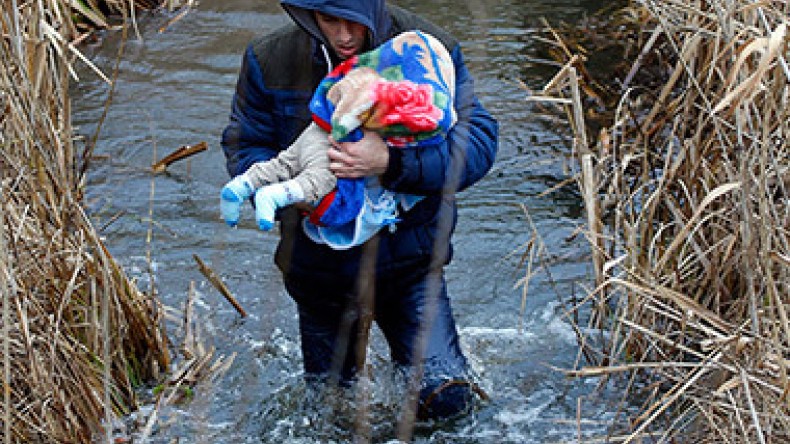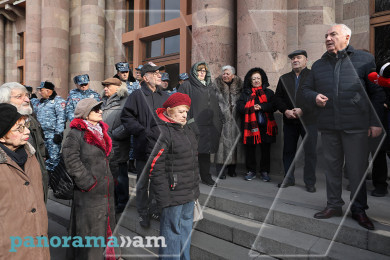
Failed Kosovo project: people leaving, but NATO demands met
Although the EU and NATO have delivered nothing to Kosovo in the way of prosperity, being there still meets the criteria of allowing expansion further east, Serbian affairs commentator Marko Gasic told RT.
January 17 marked seven years since Kosovo declared independence from Serbia. However because of high unemployment and poverty thousands of Kosovans look for a better life elsewhere making their way to European countries. Berlin, Vienna and Geneva have plans deport those who recently arrived, and are asking the Kosovo government to cover the expense. Hungary also wants tougher controls to stop the flow of illegal migrant from Kosovo.
RT: Do you think we will see mass deportations in the coming months?
Marko Gasic: Well I expect something of that order, yes. But the key thing here is that the population of Kosovo appears to be voting with their feet and leaving the failed Kosovo project. It is clearly a failure economically and in every sense. And this is what created the crisis. There is of course another school of thought that suggests that the leadership in Kosovo perhaps is helping this crisis to occur in order to give the EU a choice between billions of euro of aid going to Kosovo, or half a million refugees going to the EU. So everything is possible…We had scenarios in the past of crises in Kosovo which have been manufactured. But the main thing is that the ordinary person seems to have no future in a place which is riddled with corruption, crime from drug trafficking, from forced prostitution, organ trading. There is nothing of a viable industry in Kosovo at the moment which is the situation that the people are reacting to.
RT: The number of immigrants from Kosovo skyrocketed by 86 percent last month. The problem of immigration is nothing new, but why the sudden surge?
MG: Well that’s an interesting thing. As I said, there are elements here of almost programming that these people are suddenly leaving, and it does indicate the degree of organization on somebody’s part. So that goes back to the question who might be involved in creating this scenario. But whoever is behind it, the fact is, in practice it can be a very big headache for the EU, because of course we have the pan-European far-right already concerned with legal migrant flows within the EU, and are now faced with the illegal migrant flow from without the EU. So clearly Europe and the EU will not want to take the domestic consequences of what’s going on and will want to pass this headache back outside the EU, further south perhaps towards Serbia which may have been the plan all along.
RT: The US and the EU were both very vocal supporters of Kosovo's independence.Why are they turning their backs when the independent region is in need of them again?
MG: The EU together with NATO has attempted to manage the Kosovo project and has utterly failed to do so. If Kosovo had been under Serbian control, the Serbians would be to blame for these consequences; we would be hearing all sorts of accusations. But the fact is that Kosovo is now under NATO control and aided and abetted by the EU. And in 16 years the EU and NATO have delivered nothing to Kosovo in the way of prosperity. It has been a complete failure on all counts. Even the EU itself is now accused to be part of the corrupt society that they have helped to create in Kosovo. So clearly this is not something that the EU wants to see blowback from the failure of its policies, externally back into the EU. But from NATO’S point of view Kosovo still meets the main reason why the whole crisis began 16 years ago which was the ability of NATO to relocate from Germany in force into the biggest military base since Vietnam, that’s Camp Bondsteel sitting there in the heart of Kosovo which doesn’t require anybody’s permission as it continues its encirclement of strategic targets further east. So Kosovo still fulfills NATO’s demands for its function even if doesn’t fulfill any demands of the population, and any demands for what economic prosperity should involve.
Newsfeed
Videos






























